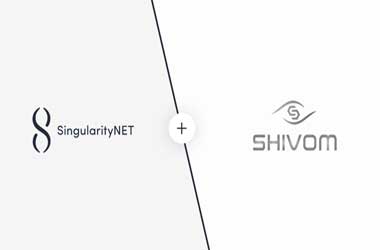
The working modality will be as follows. Shivom’s platform will store all the relevant medical data pertaining to client, including genomic details, limitations on the nature of research for participation, and compensation requirements, if any. Whenever, a scientist or any other professional send out request for a particular kind of data to the SingularityNET platform, a search will be conducted in the Shivom’s data base. The matching data, if available, will be compiled and transmitted to the processing algorithms, which would deliver the analytic results without exposing any kind of personal data to the researcher.
SingularityNET’s bio-AI team is involved in multiple research projects in genomics. One of the noteworthy projects is a genomics research on longevity. In a blog post, Dr. Ben Goertzel, CEO of SingularityNET, and Michael Duncan of Hong Kong bioinformatics firm Mozi AI Health, have outlined the manner in which SingularityNET is building an automated regenerative medicine system by applying an integrated AI research. It is needless to say that SingularityNET has a partnership with Mozi AI Health as well.
Coming back to this partnership, once the integration is complete, users of both SingularityNET and Shivom can mutually use the other platform to receive genomic data or perform AI analytics. SingularityNET is building other AI solutions such as network analysis and social media analytics, in addition to the biomedical analytics discussed above. The ultimate aim of SingularityNET is to enable AI algorithms to communicate with each other, leading to the creation of an active commercial market place for AI solutions and emergence of true and admirable artificial intelligence.
The SingularityNET founders are convinced that open source and decentralization will only be able to create free and fair artificial intelligence systems without interference from any government.
Project Shivom uses blockchain technology to advance genomics, while personalizing health care, protecting identity and transforming lives. Both parties are determined to extend their services by setting up a global network of laboratories and research centers. Even genetic counseling and related services are planned.
Commenting on the partnership, SingularityNET CEO Dr. Ben Goertzel said
“We are excited about Shivom’s vision for the next era of genomics, and are happy to be working with them. Tools must be developed to enable AI and other analysis of genomics data, without the researcher necessarily being able to view the entirety of the individual’s genetic makeup and medical situation.”
Dr.Goertzel further stated
“The questionable relationship between the UK government and Google Deep Mind Health, for example, highlights the need for decentralized medical big data and AI. What we see here is a centralized government medical system dancing to the tune of a big, centralized AI/data company. Who will own the deep knowledge about human life and death, and health, disease and body function – which AI is going to discover by analyzing the world’s biomedical data? This is precisely what is at stake.”
On the future of this partnership, Dr.Goertzel opined
“A key focus for SingularityNET’s bio-AI team is the creation of AI services carrying out genomic, proteomic and clinical analysis using tools from OpenCog. Integrating a number of biomedical reference databases, these solutions can offer classification and diagnostic models, as well as useful insights and explanations of the key genes and processes influencing AI decisions. Integration of Shivom’s tools and data into the network should add yet more scope and intelligence.”